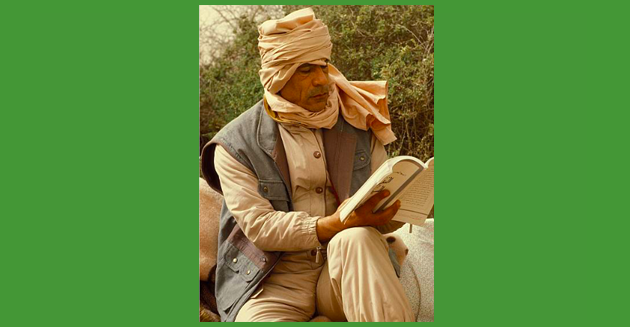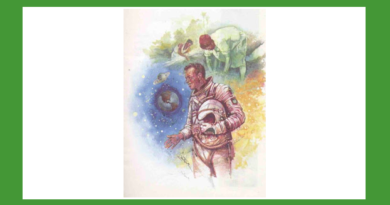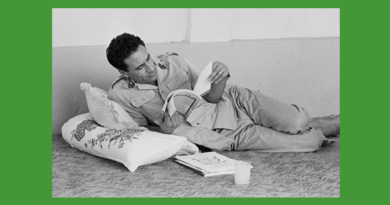The Village
The Village
Run away, leave the City quickly. Get away from smoke… From stifling carbon dioxide… From poisonous carbon
monoxide… From sticky humidity… And from poisonous gas, which encouraged inactivity and indolence. keep away from the atmosphere of laziness, boredom, weariness and yawning. Keep away from the nightmare of the City, pull yourselves quickly out from under its crushing weight… Liberate yourselves from walls, catacombs and being locked behind doors. Save your ears from noise, clamour, hubbub, shouting, the hissing noise of wires, the ringing of the bells and the rattle and clatter of the engines. Abandon the disturbing atmosphere, the annoying places and that trapping enclosure where eye-sight is limited and one’s energy is spent in vain. Abandon the life and holes of mice. Abandon the life of worms. Abandon the city. Come to the village, where you can see the moon for the first time in your life-time, after you have changed from insignificant greedy worms and mice, void of social ties, to real human beings here, in the village, in the oasis, in the countryside. Get out of the catacombs for a living people and come to Allah’s dominion, which is wide, gay and delightful, where you can see the natural chandelier and come to loathe the artificial one, which is made of sand, sold in markets, fragile, likely to be destroyed at any time, and rendered dirty by the flies and the spiders in the city dens, called houses and flats.
Behold God’s lanterns in the countryside, hung in the sky, and not in the ceiling of a dirty grave in the city.
The village is peaceful, clean and coherent. The people there know one another, and are allied in time of prosperity and adversity. There are no thefts in the village and the countryside as the people know one another.
The individual there attaches great importance to the reputation of his family, his tribe and his all good name.
Any act of misdemeanour in the village does not come to an end on the day it is committed, as it does in the City, where the offence is usually registered against unknown person, because of the great number of different people living in the city – it does not even end by the death of the culprit. On the contrary, it remains a sort of stigma for his family, his clan and his tribe in the eyes of other clans and tribes, and constitutes a permanent insult to kith and kin. This restraining social factor is stronger than the power of penal codes or the police force. Furthermore, solidarity and association in the village and the countryside help the needy, and save them from having to beg or steal. On the other hand, the simple, humble and unpretentious lifestyle in the village and the countryside stays far enough away from pleasures and luxuries.
The People in the village and countryside do not crave for such absurd desires as townsmen do. The village know little about fashion, style and ‘ Vanity FIR’. The taste of the people there is quiet, clear, stable and not easily influenced by changes in fashion. Countrymen do not suffer from complexity, tension and pursuit of excitement. That is why they they have a happy quiet life, which is free from harmful desires. Of course, desires as such are pleasurable. But when they are sought for their own sake, what comes before and after them is agony, pain, distress and misery; it is the agony of desiring unnecessary things, which is sought because it is scarce. Necessary activities, such as ploughing and harvesting to earn one’s bread, or planting trees and picking their fruit to use as food, are necessary. The amount of labour spent on such activities is not boring or, at least, it is not self-defeating. It is enjoyable labour because it is lawful and necessary. No feelings of remorse comes before or after it. On the contrary, it is associated with the pleasure of hoping to see its results and with the satisfaction of gain afterwards.
Life in the City is a quest for pleasure and unnecessary luxuries that cannot be avoided. When we see social diseases spread in the city, and hear sermons about them and make laws to keep them under control, we are neither astonished , nor do we think that we are going to succeed in uprooting them, because the nature of life in the city is unavoidably related to these diseases. As a matter of fact, the city is nausea …, giddiness …, catacombs …, nonsense …, wastage …, madness and fear of madness …, fear of confronting life and its urban problems and hence how to escape from it … how to ignore it … how to make up for the social and moral vacuum … and than inability to satisfy urban desires. Diversion is sought to forget about real-life; and drinking, madness and suicide become the only possible cures for the diseases of urban life. At times, for some people, or rather for a good number of townsmen, city life with all its wastage, unreality, superficiality and irresponsibility is considered as cure in its own right.
Will you, leave the earthly Hell, and go quickly and happily to the village and the countryside? There the physical effort one makes has meaning, necessity, benefit and pleasure. Only here, in the village can one enjoy social and human life. There are strong house holds, united families and great solidarity among the tribes in the countryside. Stability, faith and serenity flourish there. Country people like one another, each working on his farm, or attending his sheep and chickens, or in the service of the village. There is no room for delinquency there, because, unlike townsmen, country people know one another.
In the City delinquents feel quite sure that hardly anyone cares who they are. So he who tells lies can do so and fears no social repercussions, his family on this tribe. As townsman, he has no name, no surname and no pedigree. His flat number is his name… His telephone number is his surname, and his pedigree is the street and his place of work. These things he may change from time to time. Therefore, what he is at the moment is bound to be different afterwards.
How beautiful the village is!… and the countryside, where the air is fresh… the endless horizon… the pillar – less firmanental ceiling… the heavenly lanterns… and conscience! Morals are the source of moral obligation and self-discipline and not the fear of the police, the law, penalties or prison. There, one is liberated from the forced fetters of city life and the loathsome but necessary directions. There are no traffic police whistles hissing in the concerned ears as well as unconcerned ones… there are no compulsory traffic signs… no shouldering others aside… no queuing… no waiting… and no need to consult ones watch. In the village and the countryside, where there is extensive space , joyous expansion, a delightful world, an easy and quiet life. There is none of the narrowness and crowding of the city. There, the moon has a meaning… the sky is delightful… And the horizon excites one’s vision… the sunrise… The sunset… the twilight … and dusk are no less beautiful. Contemplate the superb picture of the village and the countryside, which the Koran depicts ” So I do call to witness the ruddy glow of sunset; The night and it’s homing; And the Moon on her fullness”.
The city has no moon… no sun… No twilight… and no dusk. There, day and night intermingle with no separating signs. We hardly see anything of nature there. We only see contradictions and deceptive colours. We get annoyed and harassed we put up with nonsense and sleaziness. We look down at our feet. We have to read posters and observe traffic signs and find ourselves by necessity caught up in a world of the trivial things, otherwise, we run the risk of getting killed. Any act of deep thought other than observing these minute things would certainly get you out side the fence of the flow of city life and could cost you your life or your urban freedom.
The Koran says, “By the Sun and his glorious splendour; by the Moon as she follows him; by the Day as it shows off the Sun’s glory; by the Night as it conceals it; by the Fermanent and its wide expanse” That is a wonderful picture of the world in the village and the countryside. The Koran also says, “by the glorious Morning light, and by the Night when it is still” When the Koran swears by Dawn, we know that Daybreak is seen only in the village and countryside. What daybreak is there in any city floodlit day and night? Who sees the fermanent with the zodiac signs!? “And in the Earth are signs for those of assured faith” What earth is there in the city?… Crowded pavements… congested streets… blind alleys… Narrow lanes… Bottlenecks… Friction… And limited vision… What natural signs can assure open-minded people in the streets of the city!? What contemplation can there be among the throngs of the city!? There is hardly any time worth mentioning in the city, nor is there a day or night; let alone sunset; dusk; dawn, or twilight!!



